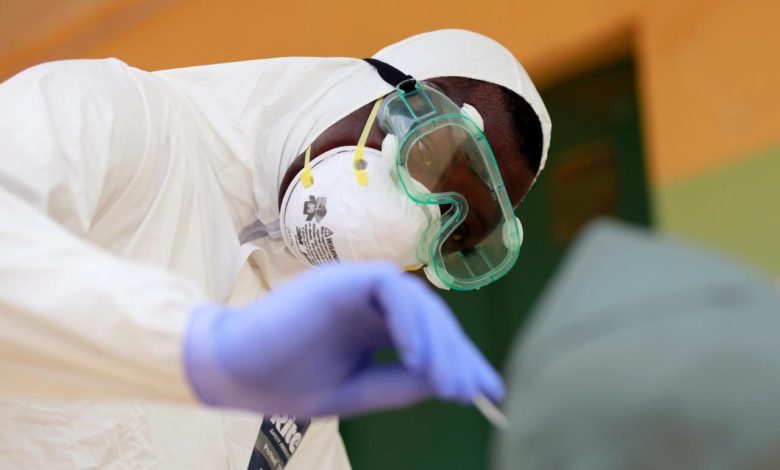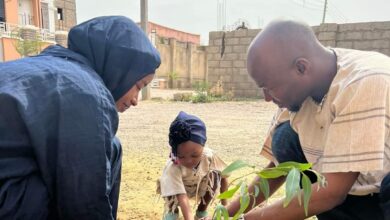COVID-19: Is Nigeria At Risk Of Second Wave?

On Tuesday, October 6, 2020, Nigeria recorded 118 new coronavirus cases, bringing the total number of confirmed cases in the country to 59,583.
The recent figures of infections have shown a great decline in the number of cases compared to the peak period witnessed in July after which a steady decline began a month later.
But in Europe, countries such as Spain, France and the United Kingdom have begun to see a second wave of the virus infection and reintroduced lockdowns and curfews in cities where major surges have been reported.
Since the easing of lockdowns in Nigeria and a transition into curfew, social distancing has been close to non-existent, with many places flouting the rules and few using face masks.
The resumption of international flights in Nigeria on September 5, 2020, has also put the country at an increased risk of a resurgence, as the travel portal introduced by the Nigeria Centre for Disease Control (NCDC) and the Nigeria Immigration Service (NIS) has flaws of its own.
An example of such is the issue with the portal itself, with many unable to generate QR codes and make payment for the COVID-19 test prior to arrival in Nigeria.
This caused the Federal Government to temporarily halt foreign airlines from asking passengers to present this, thereby allowing travellers to enter the country with COVID-19 tests from their countries of departure.
Aside this, HumAngle gathered that many passengers do not obey the seven-day self-isolation rule mandated for all persons arriving into the country, while officials make no effort to ensure adherence to the rule.
As of Monday, October 5, over 27,000 passengers had arrived into the country from different parts of the world.
Restaurants, cinemas and events centres also continue to disobey guidelines issued by the Presidential Task Force (PTF) on COVID-19.
While some enforce the use of hand sanitizers and face masks at the entrance, after entry, customers remove their face covering and mingle freely with close to no social distancing. Some of these places also operate at full capacity.
Also, with places of worship, free interstate travel and schools reopening across the country, the population is exposed to a greater risk of witnessing a second wave of the virus infection.
Caution has pretty much been thrown to the wind, and a sense of relaxation gripping citizens across the country.
The PTF on COVID-19 has also stated that there has been a low number of testing, which has been a contributing factor to the low numbers of confirmed cases daily.
It warned the public not to be deceived that the virus had gone.
Even during the height of the pandemic, Nigeria’s testing capacity had been very low, with only 536,695 tests done since February 2020, when the country recorded its index case.
But with a cheaper and faster testing kit developed by scientists with the Nigerian Institute of Medical Research as reported by HumAngle, there is hope for a rapid increase in testing capacity.
The Chairman of PTF on COVID-19, Mr. Boss Mustapha, warned against the new attitude of Nigerians towards the virus, saying that the atmosphere in the country was returning to the “pre-COVID era”, and face masks were now being used as chin masks.
He also urged vigilance when it came to social distancing, the use of face masks and adoption of all necessary non-pharmaceutical measures.
“The lesson for us in Nigeria, is that in spite of appreciable progress recorded, we should be vigilant more than ever before because we have opened our air spaces to international travels, we have relaxed a number of restrictions in opening up more sectors of the economy and schools are beginning to open in varying degrees,” Mustapha said.
He cited second waves of the virus infection across the world, noting that Israel had reintroduced a three-week lockdown, while the UK had once again limited all gatherings to no more than six persons and introduced a curfew from 10pm.
The city of Madrid in Spain and France also enforced a partial lockdown, Mr. Mustapha added.
Support Our Journalism
There are millions of ordinary people affected by conflict in Africa whose stories are missing in the mainstream media. HumAngle is determined to tell those challenging and under-reported stories, hoping that the people impacted by these conflicts will find the safety and security they deserve.
To ensure that we continue to provide public service coverage, we have a small favour to ask you. We want you to be part of our journalistic endeavour by contributing a token to us.
Your donation will further promote a robust, free, and independent media.
Donate Here




